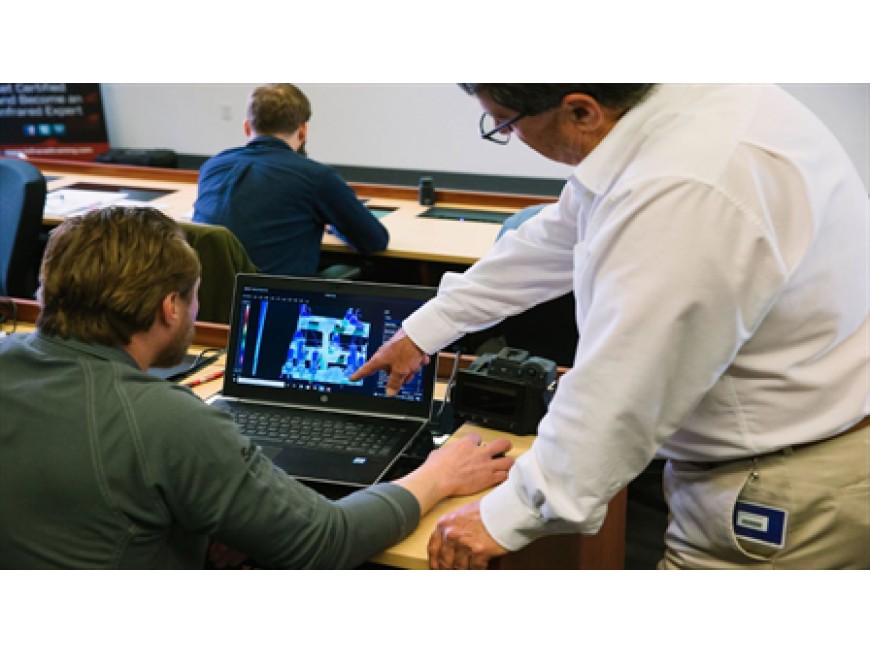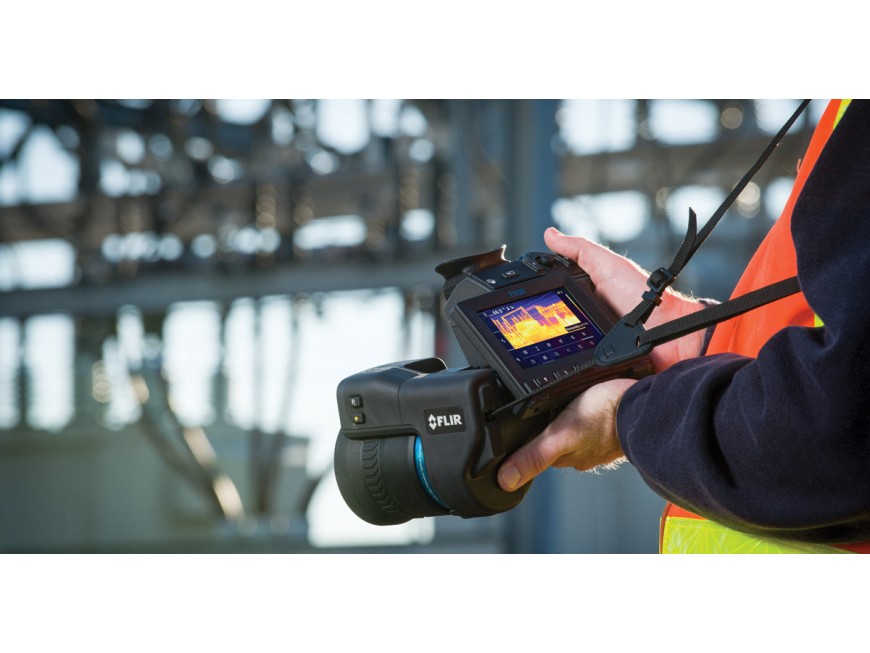TRAINING COURSES
Grow your knowledge and IR expertise with ITC certification training. Our variety of courses cater to your learning needs and preferences. We provide the leading experience for classroom, online, onsite, and on-demand training.
Level I
Level I certification is the first of three infrared training levels the ITC offers. Level I thermographers are typically new to infrared thermographic diagnostics but that doesn’t imply that they are entry-level condition monitoring technicians; many Level I professionals actually have years of experience in building and maintaining complex systems.
Level I thermographers generally follow a written test procedure to evaluate specific types of equipment in their facility. They use their infrared cameras and software to identify and measure thermal anomalies based on thermal patterns, comparisons with similar equipment, and their own experience.
Level II
Level II certification is for experienced, professional thermographers and troubleshooters. A Level II thermographer typically deploys more than one diagnostic technology to determine the root cause of a problem and recommend repairs. Because of their more advanced IR training, Level II thermographers are qualified to provide technical direction to Level I certified personnel.
Level III
This is the most advanced infrared training level available. A Level III thermographer is primarily a thermography program manager who writes the company’s written predictive maintenance/inspection practices, develops the test procedures and severity criteria, determines how often equipment should be inspected, and calculates the return on investment the thermography program is providing.
By completing this advanced infrared training, a Level III thermographer can provide guidance to Level I and II certified personnel. The Level III thermographer is the resource to consult when repeat equipment problems necessitate a review of operating and maintenance procedures or involve a redesign of equipment.
Thermography training and courses provide individuals with the knowledge and skills required to effectively and safely use thermal imaging technology for various applications. Here are some benefits of undergoing thermography training:
Accurate and Reliable Inspections:
Thermography training equips individuals with the necessary skills to perform accurate and reliable inspections using thermal imaging cameras. Proper training ensures that thermographers understand the principles of thermography, thermal physics, and the correct operation of thermal imaging equipment. This knowledge enhances the accuracy of inspections and increases the reliability of the results obtained.
Enhanced Safety:
Thermography training emphasizes safety protocols and guidelines for conducting thermal inspections. Professionals learn how to handle thermal imaging equipment safely, interpret thermal images correctly, and identify potential hazards in various environments. This helps ensure the safety of both the thermographer and the people involved in the inspection process.
Improved Efficiency:
With training, thermographers learn how to optimize the use of thermal imaging cameras and interpret thermal images effectively. They become proficient in identifying anomalies, such as heat loss, electrical faults, moisture intrusion, and mechanical issues. This improves the efficiency of inspections, allowing for faster identification of problems and more targeted maintenance or repair actions.
Cost Savings:
Thermography training enables thermographers to identify hidden issues or inefficiencies that may lead to significant energy waste, equipment failure, or structural damage. By detecting and addressing these problems early on, costly repairs, downtime, and potential safety hazards can be avoided. This results in cost savings for businesses and organizations.
Expanded Career Opportunities:
Completing thermography training and obtaining relevant certifications enhances career prospects for individuals. Many industries, including building inspection, electrical maintenance, mechanical engineering, and energy auditing, require professionals with thermography expertise. Having the necessary training and certifications opens up new career opportunities and increases employability in these fields.
Quality Assurance:
Thermography training ensures that inspections are performed to industry standards and best practices. Professionals learn about applicable regulations, guidelines, and protocols specific to different applications. This adherence to standards ensures consistent and high-quality inspections, enhancing customer satisfaction and trust in the services provided.
Continuous Professional Development:
Thermography training is not a one-time event but rather a continuous learning process. Professionals can further develop their skills and knowledge through advanced thermography courses and specialized workshops. This ongoing professional development allows thermographers to stay up-to-date with the latest technologies, techniques, and industry trends, ensuring they provide the most effective and efficient thermal inspections.
Improved Customer Confidence:
By undergoing thermography training, thermographers gain credibility and expertise in their field. This instills confidence in customers and clients who rely on accurate and reliable thermal inspections. The ability to demonstrate professional competence and adhere to industry standards builds trust and establishes long-term relationships with clients.
Thermography training offers a range of benefits, including accurate inspections, enhanced safety, improved efficiency, cost savings, expanded career opportunities, quality assurance, continuous professional development, and increased customer confidence. Investing in thermography training can be a valuable asset for professionals involved in various industries and applications of thermal imaging technology.






